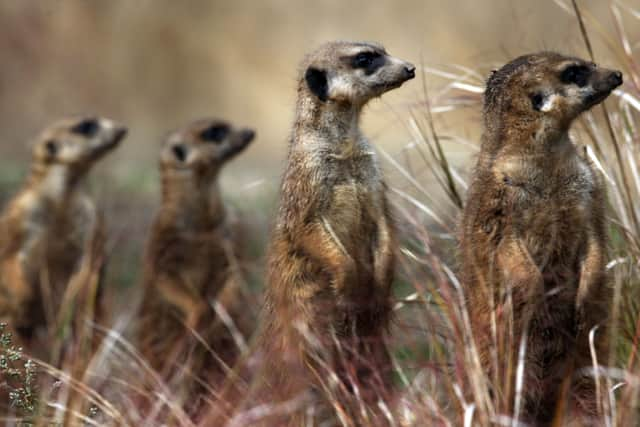Can zoo animals tell how we feel? Researchers looking into whether meerkats pick up on human emotions
and live on Freeview channel 276
UK researchers are investigating whether meerkats in zoos can tell how their keepers and visitors are feeling, and whether they change their behaviour to suit - which they hope could help improve how they are cared for.
Nottingham Trent University zoo animal welfare researchers and psychologists want to better understand the potential impact people have on zoo animals, including whether they can detect emotions like happiness, sadness or anger from guests. They hope their findings might be able to help improve experts’ understanding and management of different species.
Advertisement
Hide AdAdvertisement
Hide AdExperts already believe that domesticated animals like dogs, cats and horses are able to understand how people feel - and may even understand human facial expressions - but less is known about wild animals living in zoos. The team decided meerkats, who are highly attentive to their surroundings and frequently interact with both familiar and unfamiliar people, were the perfect place to start.
Dr Samantha Ward, an NTU researcher, told PA: “Wild animals housed in zoos undergo daily interactions with familiar and unfamiliar people and this presents an ideal opportunity to see if they recognise human emotions and in a sense catch them.


“We’re keen to know whether these abilities might be influenced by the frequency of human-animal interactions, as might be the case with strangers, or familiarity with known people such as zookeepers," she continued.
If the team found that zookeepers influenced the behaviour of meerkats but the visitors did not, they could use this information to change how they managed the animals, Dr Ward said.
Advertisement
Hide AdAdvertisement
Hide Ad“If it’s the people rather than the zookeepers then that could be considered when undertaking measures such as enclosure design."
The upcoming study will see researchers monitoring meerkat behaviour, and their interactions with both zookeepers and visitors they may not have met before. They are also eager to find out whether their behaviour changes at all, such as whether they demonstrate empathy by mirroring the emotions of people they see.
Dr Annika Paukner, associate professor in Comparative Psychology in Nottingham Trent University’s School of Social Sciences, said recognising each others emotions is vital for social animals - including humans.
“People are so sensitive to others’ emotions for instance that interacting with an anxious person may increase one’s own anxiety," she said. “It is important that we understand how common this ability is among animals, and what the implications are for human-animal interactions.”
Comment Guidelines
National World encourages reader discussion on our stories. User feedback, insights and back-and-forth exchanges add a rich layer of context to reporting. Please review our Community Guidelines before commenting.
